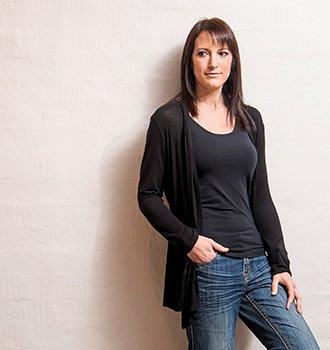Latest News Archive
Please select Category, Year, and then Month to display items
31 July 2020
|
Story Lacea Loader

As a public higher-education institution in South Africa with a responsibility to contribute to public discourse, the University of the Free State (UFS) will be presenting the 3rd UFS Thought-Leader Series in collaboration with Vrye Weekblad as part of the Vrystaat Literature Festival’s online initiative, VrySpraak-digitaal.
This year, higher-education institutions
globally are placed in the challenging context of COVID-19. Aware and grounded in the reality that the world will not return to the normality of pre-COVID-19, our responsibility as scholars still remains to contribute to public discourse and to offer
innovative solutions that will impact the lives of people nationally and globally in order to help them understand and adapt to a new world order.
Against this background and context, this year’s debates focus on ‘Post-COVID-19, Post-Crisis’,
with Health and Modelling, Politics, Economy, and Predictions for 2021 as the sub-themes. Placed in a COVID-19 context, and in lieu of the Vrystaat Arts Festival,
the series will be presented virtually in the form of one webinar per month during the period August 2020 to November 2020.
Date: 13 August 2020
Topic: Health
and Modelling
Time: 11:30-13:00
RSVP: Alicia Pienaar, pienaaran1@ufs.ac.za
Facilitator:
Max du Preez
Editor: Vrye Weekblad
Biography
Introduction and welcome:
Prof Francis Petersen
Rector and Vice-Chancellor, UFS
Panellists:
Prof Salim Abdool Karim
Director: Centre for the AIDS Programme of Research in South Africa (CAPRISA)
Chair: South African Ministerial Advisory Committee on COVID-19
Biography
Prof Glenda Gray
President and CEO: South African Medical Research Council (SAMRC)
Biography
Prof Felicity Burt
NRF-DST South African Research Chair in vector-borne and zoonotic pathogens research
Biography
#Women'sMonth: Lack of HIV education still affects children
2017-08-17

Dr Nickie Goedhals, Senior Lecturer and Pathologist
in Medical Microbiology and Virology at the UFS.
Photo: Sonia Small
“Despite all the advances in the management and prevention of HIV, children still become infected every day, often due to lack of education and access to health care.” This is according to Dr Nickie Goedhals, Senior Lecturer and Pathologist in Medical Microbiology and Virology at the University of the Free State (UFS).
Study published in UK medical Journal
A case study she was part of and published in the UK medical journal The Lancet in 2012, demonstrates the transmission of HIV to a child through surrogate breastfeeding. This study is one of the many highlights in the young researcher’s career. She received her first rating from the National Research Foundation (NRF) in 2017 for the work she has done in Medical Virology over the past eight years.
According to the above-mentioned study, only about 1% of infants in South Africa are being breastfed by a surrogate. However, results from a study in the Free State showed that shared breastfeeding by a non-biological caregiver was the most important factor associated with HIV infection in discordant mother-child pairs. Therefore, continued education about the risk of HIV transmission is needed.
Dr Goedhals is also continuing with research on HIV by looking at HIV drug resistance. She is in the process of starting new projects focusing on HIV infection and drug resistance in infants.
PSP helped with NRF-rating
She says, although her NRF Y2-rating is the starting point of a research career, it shows that she is heading in the right direction, and it “gives access to research funds through the NRF for future projects.” Other important research she conducted was on Crimean-Congo haemorrhagic fever – the study for her PhD.
The Prestige Scholars Programme (PSP) at the UFS is the reason that she applied for the rating. “With all the service delivery, teaching, and administrative responsibilities of academic medicine, it is easy to lose focus. The PSP has really helped to create a focused and stimulating environment for research.” According to her, the PSP also provides access to a network of peers and senior staff at the UFS, as well as exposure to national and international experts.